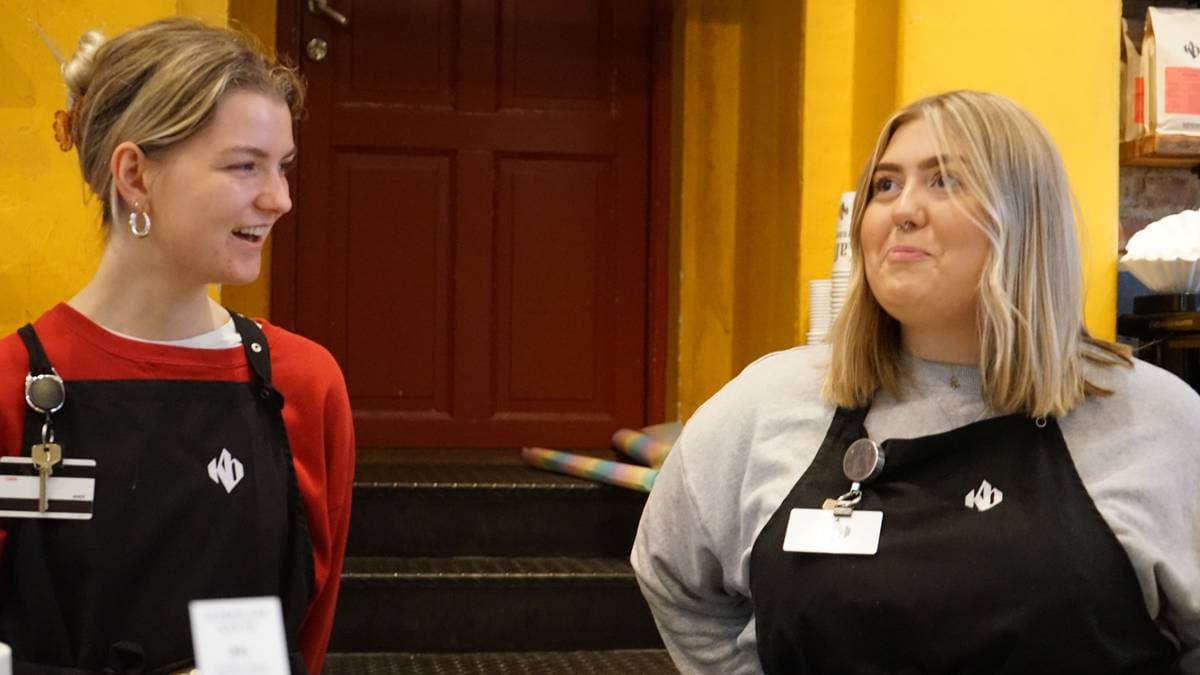Social media is filled with information and discussion, with little regulation and fact-checking.
How will this impact Norwegian politics, when more than half of the population uses social media to follow the news?
Ipsos has assessed the Norwegian public’s concerns about this with the Norwegian Communications Authority.
Surveys show that one in three Norwegians are worried that social media will influence the election campaign in the fall.
And among the younger generation, the figures are higher: almost half of those aged between 18 and 29 have the same concerns.
– Scary
Sara Tønnesen (23) doesn’t think much about the fact that social media can influence elections.
– It’s kind of scary how much influence they have.
Tønnesen himself admitted that he was easily influenced by what he saw and read there.
– I think if I saw a video on TikTok about closing the Red Party, I would probably believe it without further ado, he laughs.
Like most Norwegians, Sara Tønnesen gets information and news through social media. But, traditional media too, he said: – I think I check VG every two hours.
Madeleine Steffensen’s co-worker laughed and nodded along.
– It’s easy to believe what you see, for example on TikTok, because of the way they present things.
– I think things are worse in America
Baristas are not alone in this. Many stated in the same survey that they had difficulty distinguishing between real and false information.
Steffensen himself doesn’t believe his opinion on the election was influenced by social media.
– I am quite sure of my political point of view, and critical of the information I see on social media.

While they are critical of social media’s influence on politics, none of them is concerned about its unintended influence on this year’s election. – It doesn’t feel like what happened in Norway, says Steffensen.
Photo: Zahra Katrine Arnesen / NRK
– But I think a lot of people, especially those who are a bit politically indecisive, can easily be swayed by social media. I worry about it.
Sara Tønnesen, on the other hand, believes that there is as much political influence through social media as ever. – I think things are probably worse in America, as you saw with the elections there.
– I’m not particularly afraid that there will be a big influence on the elections in Norway.

Like many Norwegians, Madeleine Steffensen uses social media frequently, but prefers to get her news from traditional media.
Photo: Zahra Katrine Arnesen / NRK
– Worrying is natural
Election researcher Johannes Bergh predicts that technology and social media companies may play an important role in politics in the future.
– It’s understandable that many people are worried about this, says Bergh.
Researchers argue that the number of people who daily use, among other things, Google, TikTok and Facebook to get information about politics can cause concern.
Like Steffensen, he points to the United States, where one-sided use of the media has led to an increase in echo chambers, where you only hear one side of a political issue.
Better in media diversity
But Bergh sees no particular reason to worry about this fall’s election.
– Norwegians use media in different ways, he said. – We are better at getting information from various media, so echo chambers like this are not widespread here.
Bergh also said that previous investigations had been carried out to determine whether there was any foreign or undesirable influence on politics in Norway.
– And it’s never happened before. We are also not aware of any examples of misinformation impacting Norwegian politics.

Election researcher Johannes Bergh understands their concerns about the influence of big tech companies on elections and politics in Norway. – This may be a challenge we will see more often in the future.
Photo: William Jobling / NRK
Finally, Bergh wants to remind you what the goal of an election campaign is.
– Voters must be influenced. We are influenced by what politicians say and what we read in traditional media.
– This is an undesirable influence, with unfortunate consequences, that we would do well to avoid.

“Freelance bacon fanatic. Amateur internet scholar. Award-winning pop culture fan.”







